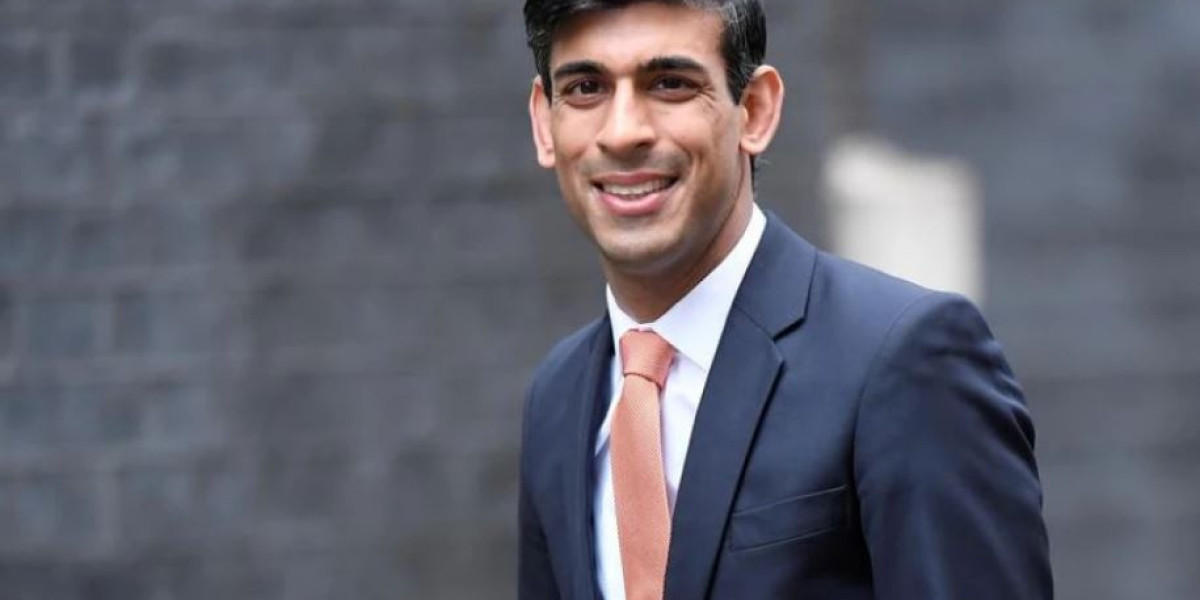Rishi Sunak is a name that has become synonymous with leadership, resilience, and innovation in British politics. He is the first person of Asian descent to lead the United Kingdom, and one of the youngest prime ministers in history. But who is Rishi Sunak, and how did he get to the top of the political ladder?
Early Life and Education
Sunak was born in Southampton, England, on May 12, 1980, to parents who had immigrated from East Africa in the 1960s. His grandparents were originally from Punjab, India, and had moved to Africa to seek better opportunities. Sunak’s father was a doctor, and his mother was a pharmacist. They instilled in him a strong work ethic, a sense of gratitude, and a respect for education.
Sunak attended Winchester College, one of the most prestigious private schools in the country, where he excelled academically and became head boy and editor of the school newspaper. He then went on to study philosophy, politics, and economics at Lincoln College, Oxford, where he was president of the Oxford Trading & Investment Society. He also spent a summer working as a waiter at an Indian restaurant in Southampton, which he later said taught him valuable lessons about customer service and humility.
After graduating from Oxford, Sunak won a Fulbright Scholarship to pursue an MBA at Stanford University in California. There he met his future wife, Akshata Murty, the daughter of Indian billionaire and Infosys founder N. R. Narayana Murthy. They married in 2009 and have two daughters.
Career In Finance And Politics
Sunak began his career in finance, working for investment banks Goldman Sachs and JP Morgan, and later joining hedge fund The Children’s Investment Fund. He became a partner at the fund in 2013, and amassed a considerable fortune from his investments.
Sunak entered politics in 2015, when he was elected as the Conservative MP for Richmond (Yorks), a safe seat that had been held by former foreign secretary William Hague. He quickly rose through the ranks of the party, serving as a parliamentary under-secretary for local government, chief secretary to the treasury, and chancellor of the exchequer.
As chancellor, Sunak was responsible for steering the UK economy through the COVID-19 pandemic, which hit the country hard in 2020 and 2021. He introduced a series of unprecedented measures to support businesses and workers, such as the Coronavirus Job Retention Scheme, the Eat Out to Help Out scheme, and various loans and grants.
He also faced criticism for some of his decisions, such as ending the furlough scheme too soon, failing to extend free school meals for children, and being involved in a contract controversy with a former employer.
Sunak became the leader of the Conservative Party and the prime minister in October 2022, after Liz Truss resigned following a scandal involving her husband’s business dealings. He won a leadership contest against Dominic Raab and Oliver Dowden, and formed a new cabinet with a mix of loyalists and rivals.
Challenges And Achievements As Prime Minister
Sunak inherited a number of challenges as prime minister, such as the ongoing COVID-19 crisis, the cost-of-living crisis, the Russian invasion of Ukraine, the Post Office scandal, and the UK Covid-19 Inquiry.
He also faced opposition from the Labour Party, led by Keir Starmer, and the Scottish National Party, led by Nicola Sturgeon, who demanded a second referendum on Scottish independence.
Sunak has also achieved some notable successes as prime minister, such as:
Leading the UK’s response to the Russian aggression in Ukraine, by providing diplomatic, military, and humanitarian aid to the Ukrainian government, and imposing sanctions on Russia. He also hosted a visit by Ukrainian president Volodymyr Zelenskyy in January 2023, and signed the Windsor Framework, a strategic partnership agreement between the UK and Ukraine.
Delivering his first budget as prime minister in March 2023, which focused on boosting growth, innovation, and social justice. He announced a range of policies, such as increasing the minimum wage, cutting taxes for low and middle earners, investing in green infrastructure, and creating a new digital currency called Britcoin.
Hosting the 2023 AI Safety Summit in London, which brought together world leaders, experts, and activists to discuss the ethical and social implications of artificial intelligence. Sunak announced a new global initiative to regulate and monitor the development and use of AI, and pledged to make the UK a leader in AI research and innovation.
Attending the coronation of Charles III and Camilla in June 2023, and delivering a speech that praised the new monarchs for their service and dedication to the country. He also reaffirmed the UK’s commitment to the Commonwealth and the special relationship with the United States.
Launching a new plan to offer asylum to thousands of Rwandans who fled the genocide in 1994 and have been living in limbo in neighboring countries. Sunak said the plan was a humanitarian gesture and a recognition of the UK’s historical ties with Rwanda.
What Are Some Criticisms And Activism Of Rishi Sunak?
Rishi Sunak, the prime minister of the United Kingdom, has faced various criticisms and activism from different groups and individuals for his policies and decisions. Some of the main issues that have sparked controversy and protest are:
His green agenda: Sunak has been accused of delaying and diluting the UK’s commitment to tackle climate change and reduce carbon emissions. He has pushed back the ban on new petrol and diesel cars from 2030 to 2035, scrapped the green homes grant scheme, and cut overseas aid for environmental projects. He has also been criticised for supporting new oil and gas exploration in the North Sea and backing a new coal mine in Cumbria. His mansion in North Yorkshire was targeted by Greenpeace activists who draped it with an oil-black fabric to highlight the dangers of fossil fuels.
His economic policies: Sunak has been challenged for his handling of the COVID-19 pandemic and its impact on the economy. He has been praised for introducing the furlough scheme and other support measures, but also blamed for ending them too soon, leaving millions of workers and businesses vulnerable. He has also faced backlash for raising taxes, cutting public spending, and imposing austerity measures that have hit the poorest and most vulnerable sections of society. He has been accused of favouring the wealthy and the corporations over the common people.
His social policies: Sunak has been condemned for his stance on various social issues, such as LGBTQ+ rights, immigration, and education. He has reportedly bowed to pressure from the Conservative right to drop a ban on conversion therapy, a harmful practice that tries to change a person’s sexual orientation or gender identity. He has also been criticised for his plan to offer asylum to thousands of Rwandans who fled the genocide in 1994, which some have seen as a cynical move to win votes and divert attention from the UK’s own human rights record. He has also faced opposition for his reforms to the rental sector, which some landlords and tenants have claimed are unfair and unworkable .
Conclusion
Rishi Sunak is a remarkable figure in British politics, who has risen from humble origins to become the prime minister of one of the most powerful and influential countries in the world. He is widely regarded as a competent, charismatic, and visionary leader, who has a clear agenda for the future of the UK.
He is also a trailblazer for the Asian community, who has inspired many young people to pursue their dreams and ambitions. He is, without a doubt, one of the most fascinating and influential people of our time.










